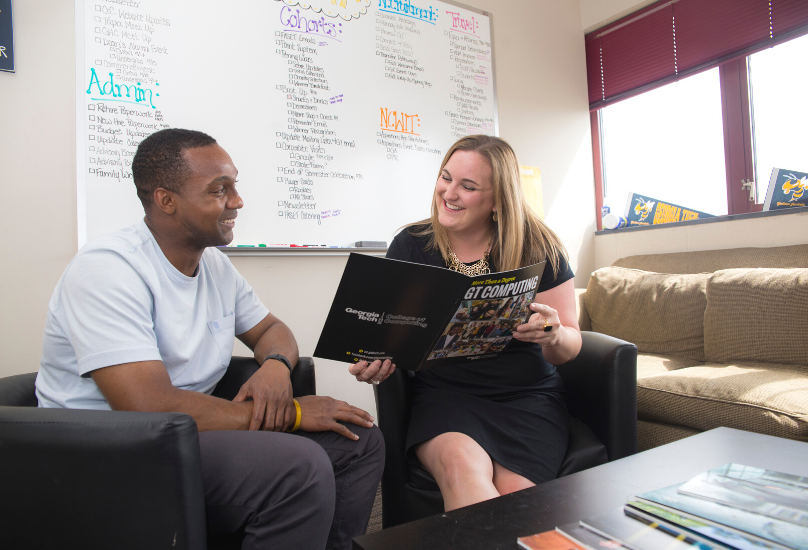


Researching Graduate School
Choosing Your Program
The first step to applying for graduate school is to identify what institutions offer your program of interest. Think carefully about programs which require you to travel or relocate as this can add additional expenses for your household later on. It is important that you spend a significant amount of time evaluating each program by reviewing required coursework and reading about faculty within the department. Make sure to check the ranking of the program, retention rates, and job placement rates for each of your programs of interest.
How Will I Finance My Degree?
Funding a graduate education is a concern for many students and can often be a deterrent from continuing one’s education. However, before deciding that graduate school isn't something that you can afford make sure to research the assistance options that you may have. For example, the following funding options are typically available:
-
Fellowships: Competitive awards that are usually based on academic achievement
-
Assistantships: Part-time paid employment, which typically includes a full or partial tuition waiver
-
Grants and Scholarships: Money "gifted" to students often through a competitive application process
Writing a Personal Statement
Personal Statements or Statements of Purpose are often required for entry into a graduate program. These statements provide you with an opportunity to express your career goals and interest in the program. Personal statements also demonstrate your writing ability and creativity, and is utilized by admissions to assess if you meet the requirements of the program. When writing your statement make sure to provide an overview of your personal history (life experiences and achievements), academic life (research experience and academic accomplishments), as well as work experience (volunteer work or internships) that are relevant to your program. Most personal statements are between 2-3 pages in length, however, make sure to follow any instructions that you are provided.
Personal Statement Do's and Don’ts
-
DO follow all instructions included in the prompt
-
DO spell check your statement and make sure there are not any formatting or grammatical errors
-
DO mention faculty you would like to work with and your reason for applying if no prompt is given
-
DO have your statement proofread by faculty or your career services advisor
-
DON'T submit the same essay to multiple schools or programs
-
DON'T over exaggerate your skills and qualifications
-
DON'T only state your passions. Make sure to identify your strengths and what makes you different from other applicants
-
DON'T repeat information in your application or resume
Career Services Resources
- Student Resources
- Career Fair
- Recruiter Information


